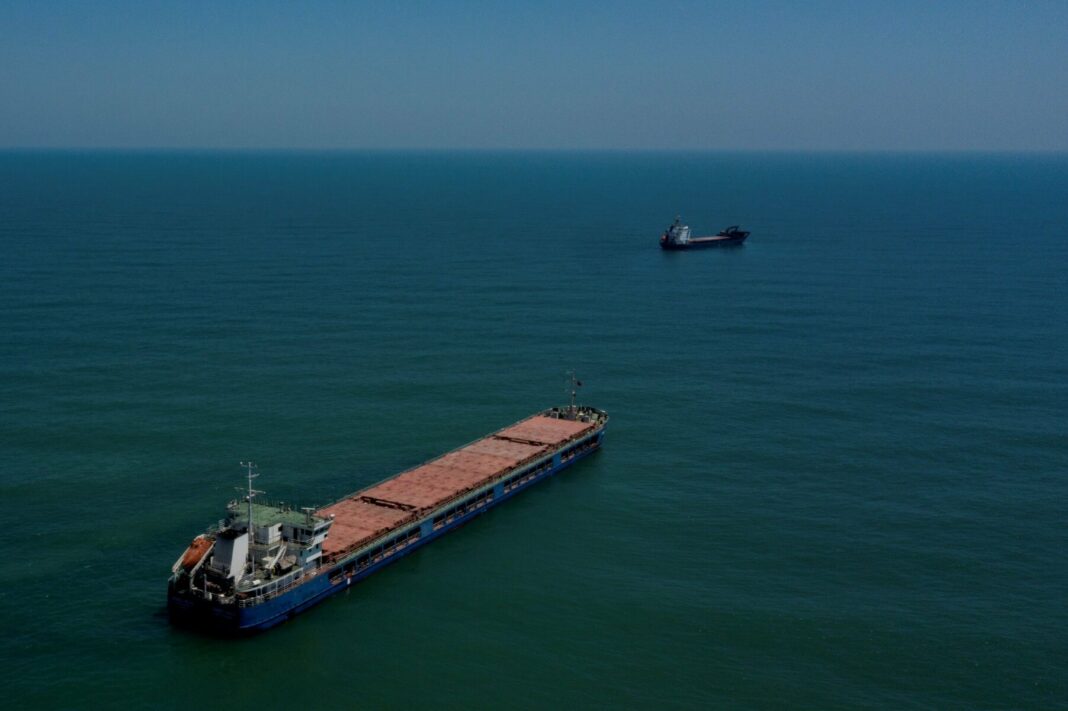Fatih Yurtsever*
Russia suspended its participation in the Black Sea Grain Initiative on July 17 and revoked the guarantees of safe navigation, claiming that the commitments to remove obstacles to the export of Russian grain and fertilizer under the terms of an agreement between Russia and the UN signed on July 22, 2022 had not been met. On July 19 the Russian Defense Ministry announced that all ships crossing the Black Sea to Ukrainian ports would be considered potential carriers of military-purpose cargoes starting at 12:00 a.m. Moscow time on July 20, 2023. The ministry also said that the flag states of such ships would be considered participating in the Ukrainian conflict on the side of Kyiv. In response Ukraine’s Defense Ministry issued a warning that from 00:00 on July 21, 2023, all vessels in Black Sea waters heading in the direction of the Russian Federation’s seaports and Ukrainian seaports on Ukrainian territory temporarily occupied by Russia may be considered by Ukraine to be carrying military cargo with all the relevant risks. According to Reuters, the Ukrainian Defense Ministry also said that navigation in the northeastern part of the Black Sea and Ukraine’s Kerch-Yenikal Strait is “prohibited as dangerous” from 05:00 a.m. on July 20.
These restrictions are designed to prevent maritime traffic to these ports, thus blocking or complicating each other’s grain exports. However, these restrictions violate the right to freedom of navigation, one of the most fundamental rights of other countries in the Black Sea under international maritime law.
Ukraine does not have enough anti-ship missiles to strike Russian cargo ships effectively. Its reconnaissance and surveillance capabilities are also limited, making detecting merchant ships sailing to Russian ports in the Black Sea challenging. However, Ukraine hopes that issuing this statement will raise the insurance costs of Russian merchant ships sailing in the Black Sea, thereby curbing Russian grain exports. On the other hand, Russia has warships with enough anti-ship missiles to strike cargo ships sailing to Ukrainian ports, and its reconnaissance and surveillance capabilities are sufficient to detect cargo ships sailing to Ukrainian ports in the Black Sea.
Russia has never formally announced a blockade of Ukraine. However, the Russian Ministry of Defense has declared several areas in the northwestern and southeastern parts of the international waters of the Black Sea to be temporarily dangerous for navigation. Since Russia did not announce a blockade, it has no right to interfere with neutral shipping unless the merchant ships flying the flag of a third country are carrying certain types of contraband, consisting of goods destined for Ukraine and which may be used in an armed conflict. Under normal circumstances, Russia would be expected to publish a list of items so that third-country merchant vessels could comply and avoid having their cargo or ships seized. However, Russia has not published certain types of cargo as contraband. Therefore, Russia cannot unilaterally, without concrete evidence, consider civilian merchant ships to be military targets and attack them with anti-ship missiles or artillery shells simply because they are allegedly carrying cargo to Ukrainian ports. In other words, if a merchant ship is carrying military supplies to Ukraine and this is based on facts, not assumptions, only then can it be a military target for Russian warships.
Under the 1982 United Nations Convention on the Law of the Sea (UNCLOS), freedom of navigation is a fundamental principle that grants all states the right to navigate, fly over and conduct maritime activities in the world’s oceans, including the high seas as well as the exclusive economic zones (EEZs) of other countries. UNCLOS upholds the principle that these rights should be exercised in a manner that respects the sovereignty and rights of other states, ensuring peaceful and secure passage for vessels of all nations. The convention sets clear guidelines and regulations to prevent any unlawful obstruction or interference with the lawful exercise of freedom of navigation, emphasizing the importance of maintaining open sea routes for international trade, communication and cooperation among nations. Russia and Ukraine are both signatories to UNCLOS.
In recent developments, Russia’s declaration to treat all merchant ships bound for Ukrainian ports as military targets has raised serious concerns over the right to freedom of navigation in the Black Sea. Surprisingly, Turkey, a key regional player, has yet to respond to Russia’s implementation. As a country bound by international law, Turkey should react to such violations of international law that allow Russia to impose restrictions on maritime traffic, effectively treating the Black Sea as a Russian lake.
The significance of this situation lies in the potential ramifications. A decisive victory for Russia over Ukraine would further enhance its geopolitical dominance in the Black Sea, emboldening Russia to make more demands of Turkey concerning the application of the Montreux Convention’s articles. This convention governs the passage of ships through the Dardanelles and Bosporus and regulates the duration of non-coastal states’ warships’ presence in the Black Sea.
While Turkey currently enjoys favorable relations with Russia, it cannot overlook the potential threats posed by Russia that expand its sphere of influence to include Ukraine. With increased power in the Black Sea, Russia could undermine Turkey’s security and geopolitical interests. Therefore, it is imperative for Turkey to diligently monitor Russia’s activities in the Black Sea and promptly demonstrate a firm diplomatic response to any violations of international law. Upholding freedom of navigation in the Black Sea is essential for regional stability and security and to safeguard Turkey’s interests.
* Fatih Yurtsever is a former naval officer in the Turkish Armed Forces. He is using a pseudonym out of security concerns.

